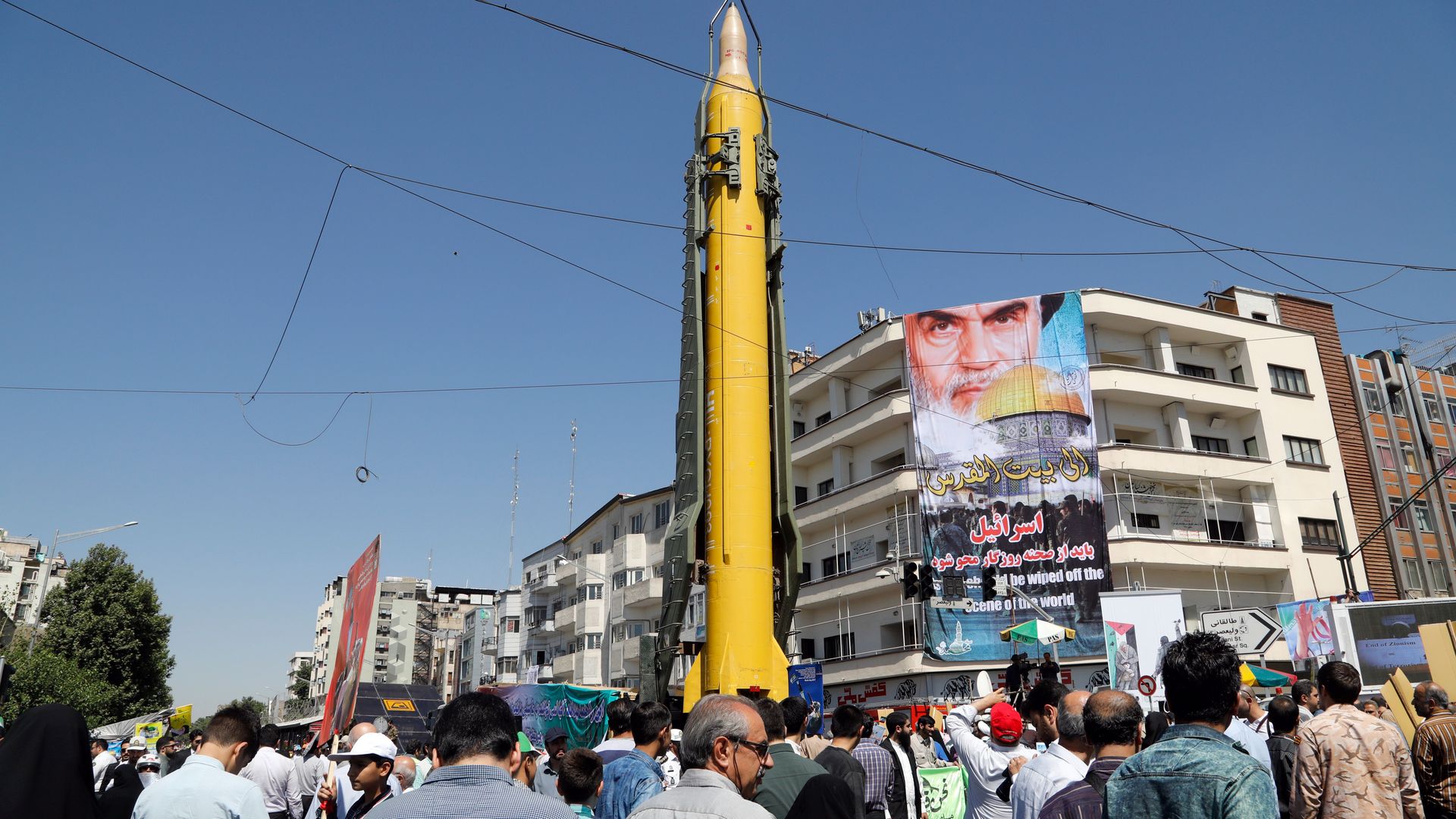Iran’s defiance on display in recent missile tests
Add Axios as your preferred source to
see more of our stories on Google.

A Shahab-3 missile on dispay in Tehran on June 23, 2017. Photo: Stringer/AFP/Getty Images
As regional tensions ratchet up, Iran has continued flight-testing its missile arsenal, most recently in last week's launch of a Shahab-3 ballistic missile.
Why it matters: Iran’s missile tests have both symbolic and practical value, helping advance military capabilities while also signaling prowess to domestic audiences and defiance to foreign powers. The Shahab-3 raises particular concerns, as it meets the range and payload thresholds to qualify as a nuclear-capable system.
Background: Halting nuclear-capable missile tests was one of 12 demands made by Secretary of State Mike Pompeo of Iran in a speech last May.
- This test marks Iran's 11th launch in 2019 alone, including 2 satellite-launch vehicles and 3 medium-range and 5 short-range ballistic missiles.
Details: The Shahab-3 is a liquid-fueled medium-range ballistic missile based on the North Korean Nodong-A, which Tehran received from Pyongyang in the 1990s.
- The Shahab-3 was mentioned in relation to Tehran’s nuclear program in International Atomic Energy Agency reporting in 2011 and 2015. A conical Shahab-3 warhead was also identified in the Iranian nuclear archive.
- Variants of the Shahab-3 can travel as far as 1200 miles, putting Iran’s major Middle Eastern adversaries Saudi Arabia and Israel in striking distance.
Between the lines: Over the past year, Iranian officials have been slower than they once were to confirm or provide details about ballistic missile launches.
- This may reflect an attempt to let actions speak louder than words. Regime adversaries like the U.S. have the requisite monitoring and surveillance capabilities to detect launches absent Iranian confirmation.
- Iran may also see too much pomp and circumstance around missile launches as potential predicates for more international pressure. Less publicity could help Iran improve its missile force without inviting unwanted scrutiny.
What to watch: As Washington continues to expand and enforce sanctions, Iran will look for additional ways to flex its muscles and make clear that it will not be deterred.
Behnam Ben Taleblu is a senior fellow at the Foundation for Defense of Democracies.
